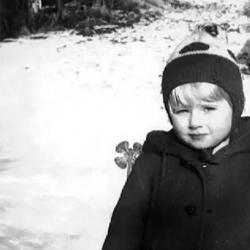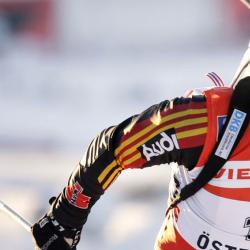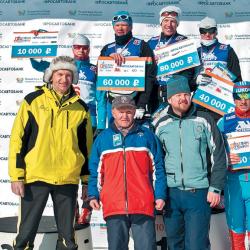Praskovya. The tragedy and greatness of the Russian family destroyed by the Nazis
The name of fellow Voronezh residents Praskovya Ivanovna Shchegoleva, who accomplished an unprecedented feat during the war, is written in golden letters in the chronicle of the Great Patriotic War.
There is a section in the history of the Great Patriotic War that is little talked about today - the exploits of civilians. Meanwhile, it is precisely these feats that often show how much the Soviet people wanted victory over the enemy. In 1942, victory was still very far away, and 35-year-old resident of the village of Semiluki Praskovya Shchegoleva gave her life and the lives of her five children for it...
...In September 1942, the front line passed through the village of Semiluki. Local residents moved to neighboring Endovishche. This is what 35-year-old Praskovya Shchegoleva and her mother Natalya Stepanovna did. Praskovya had six children - Tanya, Sasha, Anya, Polina, Kolya and Nina. The woman’s husband, tractor driver Stepan Shchegolev, went to the front. Praskovya did not know that he had already died.
On September 14, Praskovya decided that it was not for her family to huddle with strangers and starve. My native garden is nearby, in Semiluki, and the potatoes are just ripe there. A woman with five children (she did not take her eldest daughter), nephew and mother secretly went to her house. We quietly dug up some potatoes, boiled them, ate them, spent the night in our own house...
Rescued pilot
On September 15, 1942, the plane of 21-year-old junior lieutenant Mikhail Maltsev was shot down from the ground by the Germans. The IL-2 fell onto a hill, rolled on its belly along the slope towards the Don and ended up right in Praskovya’s garden.The plane was on fire. Praskovya, seeing red stars on it, rushed to throw earth at the flame. Mikhail Maltsev lost consciousness and woke up to someone shaking his shoulder. This was one of Praskovya's children.
Praskovya hid the pilot in the house and told him that there were Germans all around. The Nazis with dogs were already running towards the burning plane.
-Where should I go? - asked Mikhail.
“Just like that, go down the ravine,” answered Praskovya.
Torn to shreds...
At first, the German soldiers simply asked where the pilot had gone. Praskovya replied that she saw nothing. The Nazis didn't believe it. Let us quote a certificate from the Voronezh KGB department, which looked into the details of this case: “The Germans took Shchegoleva’s 12-year-old son Alexander, took him to a nearby empty house and, threatening to shoot his mother, tried to find out where the Soviet pilots were. Having failed to achieve this, they beat him. Returning to the courtyard, the Germans carried out brutal reprisals against Shchegoleva, her mother and five children. Before shooting them, they set dogs on them, which bit them, tore them to shreds (Shchegoleva’s jaws were knocked out and her breasts were torn off), and then they were all shot.”Sasha Shchegolev managed to escape. After killing his mother, he secretly escaped from the house through the attic. Later, it was Sasha who spoke about what happened.
Pilot Maltsev took refuge in one of the Semiluk houses. The next day, one of the women discovered him and handed him over to the occupiers. Having survived almost three years of captivity, Mikhail Maltsev was released by Soviet troops in 1945.
Almost a saint
The former pilot got a job as a forester in one of the forest districts of Bashkiria.“In the 60s, my older sister Tatyana read in “Soviet Russia” about the feat of a woman from Semiluk, who saved a pilot at the cost of her life,” recalls Mikhail Maltsev’s son Vyacheslav Mikhailovich, who was contacted by “MY!” correspondents. - Tanya then wrote to “Soviet Russia” that this is our dad...
The history of Praskovya Shchegoleva’s feat in Soviet times was pretty much varnished with pretentious speeches, and she is silent about some points. For example, about why the Nazis, who shot a woman and five children for Mikhail Maltsev, left the pilot himself alive. And that Maltsev himself, before the publication of articles in newspapers, did not strive to visit Praskovya’s grave in Semiluki. Perhaps the pilot didn’t know how he would look her family in the eyes...
One way or another, then Mikhail Maltsev and Alexander Shchegolev developed a strong friendship. According to the memoirs of Vyacheslav Maltsev, they called themselves brothers-in-arms and visited each other more than once. On each of his visits, Mikhail Tikhonovich went to Praskovya’s grave. One day he brought several Bashkir birches and planted them on the grave of his savior.

 4.
4.
It is well known that one of the most important components of our victory in the Great Patriotic War was the mass patriotism of the Soviet people and the greatness of their spirit. The hopes of the leaders of the Nazi Reich for the emergence of a second, internal front from among those “offended” by Soviet power did not materialize. Immediately after the start of Hitler's invasion, the country turned into a single combat and labor camp. The enemies soon learned the hard way about the strength of spirit and dedication of the Soviet people, who sacrificed their lives in the name of the Motherland. The exploits of that time cannot be counted. I want to tell the readers of Pravda about one of them, committed by my fellow countrywoman.
THIS HAPPENED ON September 22, 1942. Praskovya Shchegoleva, a Russian peasant from the German-occupied village of Semiluki, in the Voronezh region, received permission from the commandant to go to her own garden to start digging potatoes. She took with her her elderly mother, her four young children and her nephew.
The weather was warm, like Indian summer, and nothing seemed to foretell trouble. But, as you know, most often it comes unexpectedly...
Suddenly, a Soviet plane shot down by the Nazis lands on Praskovya’s garden. The woman gives up what she's doing, runs to the plane and helps the wounded pilot get out of the cockpit. Then she shows him where he can safely hide, that is, she hides him. He hides, knowing that there are police, field gendarmerie and other fascist punitive agencies in the village.
After some seven to ten minutes, punitive forces arrived at the crash site. When they saw Praskovya, they began to ask her where the pilot was. She replied that she did not see where he went. Then they began to beat her with rifle butts, but she continued to insist on her own. After that, they set a shepherd dog on her. But even when the dog began to chew on it, it did not give away the hidden pilot. And then the worst thing happens. Before Praskovya’s eyes, the Nazis kill her mother and four children (one seriously wounded son survived). However, this did not force the Russian Soviet woman to commit betrayal. Then the brutalized Nazis kill her too.
This is what true patriotism is! This is true greatness of spirit!
...Later, after the war, a detailed investigation into all the circumstances of this heroic tragedy was conducted by my colleague, investigator of our regional department, Lieutenant Colonel Viktor Aleksandrovich Martynenko. I note that he himself is worthy of a separate story. At the beginning of the war, he bought a U-2 plane with his own savings and fought the entire war on it with his wife, who served as a navigator.
I decided to recall this here because Viktor Aleksandrovich, as a former pilot, was personally interested in finding out the details of the death of Praskovya Ivanovna Shchegoleva. He managed to find the rescued pilot M.G. Maltsev, who lived, if I’m not mistaken, in Bashkiria, who repeatedly came to Semiluki to lay flowers on the grave of his savior. And after his death, his children and grandchildren come to venerate Praskovya’s ashes.
A monument was also erected to her and her family at the site of their death, which was inaugurated on May 9, 1965. The feat of Praskovya Ivanovna Shchegoleva was posthumously awarded the Order of the Patriotic War, 1st degree. One of the streets in Semiluki is named after her.
Now 69 years have passed since that heroic and tragic event, and I often think, especially when I speak to young people, what was the main motive, or, as A. Blok said, the “driver” of her amazing act. She was an illiterate Orthodox believer and probably knew the biblical assessment of betrayal. But still, the main thing, in my opinion, was the love for the Motherland and the greatness of spirit, brought up in it by the entire Soviet system. And this core embedded in her did not allow her to cross the line after which the label of a traitor is stuck on a person like a black mark for the rest of his life.
The story of Praskovya Shchegoleva had such a continuation.
In 2003, on the initiative of the author of these notes, an organizing committee was created for her canonization as a saint. I held a village meeting, which brought together hundreds of residents who unanimously voted for this proposal. But, unfortunately, our petition did not pass. We were told that “there was no holiness in her”...
I was probably the last person to talk with her eldest son Alexander, who had survived at the time, and who had addressed the authorities with a complaint about their inattention to the monument (Alexander soon died). I asked how the mother behaved when the children were shot, whether there were any signs of insanity. There was nothing like it! She stoically withstood all the atrocities of the Nazis, and after that how can one say that “there was no holiness in her.”
And the idea of canonization came to me after comparing the actions of P. Shchegoleva with the Great Martyr Sophia, who did not renounce her faith even after her three daughters - Vera, Nadezhda and Lyubov - were beheaded before her eyes. But she, albeit a legend, went down in history, like Joan of Arc, canonized for her patriotic and heroic deeds. Well, why isn’t our fellow countrywoman the Great Martyr Sophia?
I knew and know many heroes and devotees of the Great Patriotic War. For example, a surgeon, Professor Anna Andreevna Rusanova, from a family of famous Russian intellectuals who were friends even with L.N. himself, worked in a military hospital in Voronezh. Tolstoy. I was always amazed with what warmth, love, pride and awe she spoke about our great Motherland and the moral values on which patriots, worthy defenders of the Fatherland, were raised.
The greatness of the spirit of this Soviet intellectual is fully expressed in her following words: “In 1943, I took blood from a Voronezh peasant woman and transfused it to a wounded German prisoner of war major. I saved the life of a German who may have killed her son, husband or brother.”
And let one of the “de-Stalinizers”, the grave diggers of the Soviet period, dare after this to denigrate Soviet people who are capable of such humanism and altruism. But people were educated by the entire system of life of that time.
With this publication I would like to reach the consciousness of today's youth and tell them: do not believe various slanderous fabrications about the Soviet period of our history! The entire educational system in the country was then aimed at training true patriots and highly moral citizens, for many of whom public interests were always above personal interests. From the October years, we firmly grasped “what is good and what is bad,” and walked through life with these principles. It was thanks to this that the Motherland raised the Sailors, Kosmodemyanskys, Maresyevs, Shchegolevs, Rusanovs...
Don’t we need heroes either today or tomorrow?
Anatoly NIKIFOROV.
Retired KGB colonel.
The name of fellow Voronezh residents Praskovya Ivanovna Shchegoleva, who accomplished an unprecedented feat during the war, is written in golden letters in the chronicle of the Great Patriotic War.
On September 15, 1942, junior lieutenant of the aviation regiment Mikhail Maltsev received a combat mission: to carry out an attack on enemy equipment accumulated in the forest near the Don River and return to the airfield. While performing this mission, Maltsev's plane was shot down, fell onto a high hill and quickly began to slide on its belly along a steep slope towards the river... right into the garden. Praskovya Shchegoleva was in the garden with her children and mother. She came to her native village of Semiluki, occupied by the Nazis, to dig up potatoes, pick tomatoes and feed the children.
The plane was on fire.
- Mom, give me a shovel! - Praskovya ordered and immediately began to throw earth into the fire with a wide manly swing. Maltsev regained consciousness, stood up, opened the lantern and went down to the ground. A woman ran up to him.
- Go to the house! – she pointed to the house.
-Where are the Germans? - he asked.
- All over the village.
Indeed, secret field police departments settled in the village of Devitsa
and on the Sevastyanovka farm, and field gendarmerie detachments, in addition to these villages, were also located at the Semiluksky state farm, where the headquarters of the 7th German Army Corps was stationed.
And at this time the Nazis with dogs ran to the burning plane.
-Where should I go? Praskovya pointed behind the house.
- Just like that, go down the ravine right now. He crawled. Shchegoleva warned the children not to say anything to the Germans, she herself would answer them. Praskovya did not yet know what awaited her and the children; she did not foresee the end approaching.
As one would expect, a few minutes later the Germans arrived at the crash site. The only son Alexander who escaped from the family spoke about the atrocities of the Nazis (husband and father Stepan Yegorovich died at the front).
The Germans began to interrogate Shchegoleva and the children about the pilot’s hiding place, but none of them gave up the pilot. The woman stood her ground, declaring that she knew nothing. Enraged, the Nazis began to beat Shchegolev and her children and poison them with shepherd dogs, who tore them to shreds. Adults and children were silent. Then the Germans grabbed 12-year-old Sasha, took him to an empty house and, threatening to shoot his mother, tried to get him to tell him where the pilot was hidden. Having achieved nothing, they beat him, saying that everyone would be shot. Returning to the courtyard, they once again carried out brutal reprisals against Praskovya, her mother and five young children: the German extended his hand to the mother, tore Nina off her chest, the blanket opened, and the girl fell to the ground. The dogs were let off their leashes... And then they were all killed:
Praskovya Ivanovna (she was 35 years old), her mother, Anya - 9 years old (her plush jacket was covered like a bullet sieve), Polina - 7 years old, Nina, who was barely two years old. And two Nikolai (son and nephew) 5 - 6 years old.
Sasha got scared when he heard screams and shots. He was sitting in a locked closet. I remembered that there was a narrow hole here. He ran away through it and hid.
The memory of people like Praskovya is unforgettable...
Praskovya Ivanovna Shchegoleva - above average height, simple face, high cheekbones, brown eyes, straight nose, thick, crescent-shaped eyebrows. The look is attentive, intelligent, and a half-smile is hidden in the dimples near the lips. This is how this Russian woman appears before us from one single photograph.
"Don't judge me, Praskovya,
That I came to you like this:
I wanted to drink to your health,
And I must drink to the peace."
The poet M. Isakovsky dedicated these lines to a courageous and courageous woman.
The description of P. I. Shchegoleva’s feat became the plot of the documentary story “Praskovya” by E. Veltistov.
The rescued pilot Mikhail Tikhonovich Maltsev took refuge in one of the houses in the village. Semiluki. At night he tried to cross the Don, but failed and had to return to his shelter. The next day, he was accidentally discovered by local residents and later handed over to the occupiers by one of the women.
Maltsev survived captivity and was liberated by Soviet troops in 1945.
Lived and worked in Bashkiria. For labor merits he was awarded the order.
I visited Shchegoleva’s grave in Semiluki several times.
On his first visit, he met in a field and identified the woman who betrayed him to the Germans.
Did Praskovya have a choice? Probably there was. She and the children could have run away
before the Germans arrived and hide, or she might not have approached the burning plane at all, where without her help the pilot would probably have burned. She could have given him away by indicating the direction where he went to hide. Look, for this the Nazis could give the children a chocolate bar or a harmonica, and give her a ration of surrogate products. But Praskovya acted as she did, as her conscience told her. Praskovya Ivanovna Shchegoleva was awarded the Order of the Patriotic War, first degree, Alexander Stepanovich Shchegolev - the medal "For Courage"
Forgotten dates: 70 years ago: The feat of Voronezh countrywoman Praskovya Ivanovna Shchegoleva September 21st, 2012
 "Don't judge me, Praskovya,
"Don't judge me, Praskovya,
That I came to you like this:
I wanted to drink to your health,
And I must drink to the peace"…
The poet M. Isakovsky dedicated these lines to a courageous and courageous woman.
The description of P. I. Shchegoleva’s feat became the plot of the documentary story “Praskovya” by E. Veltistov.
The name of Praskovya Ivanovna Shchegoleva, who accomplished an unprecedented feat during the war, is written in golden letters in the chronicle of the Great Patriotic War. Praskovya Ivanovna Shchegoleva - above average height, simple face, high cheekbones, brown eyes, straight nose, thick, crescent-shaped eyebrows. The look is attentive, intelligent, and a half-smile lurks in the dimples near the lips. This is how this Russian woman appears to us from one single photograph.
On September 15, 1942, sergeant and pilot of the aviation regiment Mikhail Maltsev received a combat mission: to carry out an attack on enemy equipment accumulated in the forest near the Don River and return to the airfield. While performing this mission, Maltsev's plane was shot down, fell onto a high hill and quickly began to slide on its belly along a steep slope towards the river... right into the garden. Praskovya Shchegoleva was in the garden with her children and mother. She came to her native village of Semiluki, occupied by the Nazis, to dig up potatoes, pick tomatoes and feed the children.
The plane was on fire.
- Mom, give me a shovel! - Praskovya ordered and immediately began to throw earth into the fire with a wide manly swing. Maltsev regained consciousness, stood up and opened the lantern and went down to the ground. A woman ran up to him.
- Go to the house! - she pointed to the house.
-Where are the Germans? - he asked.
- All over the village.
Indeed, secret field police departments settled in the village of Devitsa
and on the Sevastyanovka farm, and field gendarmerie detachments, in addition to these villages, were also located in the Semiluksky state farm, where the headquarters of the 7th German Army Corps was stationed.
And at this time the Nazis with dogs ran to the burning plane.
-Where should I go? Praskovya pointed behind the house.
- Just like that, go down the ravine right now. He crawled. Shchegoleva warned the children not to say anything to the Germans; she herself would answer them. Praskovya did not yet know what awaited her and the children; she did not foresee the end approaching.
As one would expect, a few minutes later the Germans arrived at the crash site. The only son Alexander who escaped from the family spoke about the atrocities of the Nazis (husband and father Stepan Yegorovich died at the front).
The Germans began to interrogate Shchegoleva and the children about the pilot’s hiding place, but none of them gave up the pilot. The woman stood her ground, declaring that she knew nothing. Enraged, the Nazis began to beat Shchegolev and her children and poison them with shepherd dogs, who tore them to shreds. Adults and children were silent. Then the Germans grabbed 12-year-old Sasha, took him to an empty house and, threatening to shoot his mother, tried to get him to tell him where the pilot was hidden. Having achieved nothing, they beat him, saying that everyone would be shot. Returning to the courtyard, they once again carried out brutal reprisals against Praskovya, her mother and five young children: the German extended his hand to the mother, tore Nina off her chest, the blanket opened, and the girl fell to the ground. The dogs were let off their leashes... And then they were all killed:
Praskovya Ivanovna (she was 35 years old), her mother, Anya - 9 years old (her plush jacket was covered like a bullet sieve), Polina - 7 years old, Nina, who was barely two years old. And two Nikolai (son and nephew) 5 - 6 years old.
Sasha got scared when he heard screams and shots. He was sitting in a locked closet. I remembered that there was a narrow hole here. He ran away and hid through it.
The rescued pilot Mikhail Tikhonovich Maltsev took refuge in one of the houses in the village. Semiluki. At night he tried to cross the Don, but failed and had to return to his shelter. The next day, he was accidentally discovered by local residents and later handed over to the occupiers by one of the women.
Maltsev survived captivity and was liberated by Soviet troops in 1945.
Lived and worked in Bashkiria. For labor merits he was awarded the order.
I visited Shchegoleva’s grave in Semiluki several times.
On his first visit, he met in a field and identified the woman who betrayed him to the Germans.
Did Praskovya have a choice? Probably there was. She and the children could have run away
before the Germans arrived and hide, or she might not have approached the burning plane at all, where without her help the pilot would probably have burned. She could have given him away by indicating the direction where he went to hide. Look, for this the Nazis could give the children a chocolate bar or a harmonica, and give her a ration of surrogate products. But Praskovya acted as she did, as her conscience told her. Praskovya Ivanovna Shchegoleva was awarded the Order of the Patriotic War, first degree, Alexander Stepanovich Shchegolev - the medal "For Courage.
In 1967, a monument was unveiled at her burial site.
VORONEZH, May 6. /TASS/. The authorities of the village of Semiluki near Voronezh are going to erect a monument to the 75th anniversary of the feat of Praskovya Shchegoleva, who is called the heroine of the song “Enemies Burned Their Home,” Lyudmila Zdorovtsova, deputy head of the administration of the Semiluki district, told TASS.
“Since the beginning of April, we have collected 629 thousand rubles for the monument to Praskovya. So far, one application has been submitted for the competition for the best design of a monument to the 75th anniversary of Shchegoleva’s feat: the artist Valery Gomozov proposed a monument for 3 million rubles, more than 5 meters high, made of luminous concrete and with a bell ", Zdorovtsova said.
Your own Praskovya
In the village of Semiluki near Voronezh, everyone knows about Praskovya Shchegoleva. “Since childhood, my teachers and I went to Praskovya’s grave, everyone has many of their own memories and impressions,” said 81-year-old Inna Merkulova, a former Russian language teacher and creator of the Praskovya Shchegoleva Museum at Semilukskaya Secondary School.
On the site of Praskovya’s house on Donskaya Street half a century ago, a gray obelisk was erected: a portrait of Shchegoleva in a black scarf, a list of those buried: 35-year-old Praskovya Ivanovna, her 70-year-old mother Natalya Stepanovna, children - 8-year-old Anna, 6-year-old Polina, 4- year-old Nikolai, two-year-old Nina and 4-year-old nephew Kolya. “They sacrificed their lives saving the pilot M. T. Maltsev,” it says.
The present is about the past
Four grandchildren of Praskovya live in the village of Semiluki - Nina, Alexander, Galina and Tanya, as well as great-grandchildren, great-nephews - many relatives. None of the Semiluki residents doubt that the song “Enemies burned their home” was written about Shchegoleva. “Because our Praskovya and the one from the song have the same fate,” explained Valentina Bogatyreva, director of the Semiluksk interdistrict library.
According to Inna Merkulova, the chairman of the Semiluksky collective farm, Grigory Sklyarov, wanted to erect a monument to Praskovya in the 1960s. “For the 20th anniversary of the Victory, Sklyarov erected a monument in the village in memory of 815 fallen collective farmers and specially left a place for the monument to Shchegoleva. The newspaper announced a fundraiser, but did not manage it - it was expensive; and then the chairman died,” Merkulova recalled.
Last day
In July 1942, the Germans occupied the village of Semiluki near Voronezh, and Praskovya and her six children moved to relatives in neighboring Endovishche. “There was a famine, and on September 14, 1942, Praskovya went to her garden in Semiluki for potatoes with her mother, 12-year-old son Sasha, and also Anna, Polina, Kolya, Nina and nephew Nikolai. She did not take her eldest daughter Tanya,” he said director of the local history museum.
We dug up potatoes, spent the night, and on the morning of September 15th we were already going back, but an IL-2 crashed into the garden. “Praskovya helped the wounded pilot and showed where to go - through a ravine along the Don to another street into vegetable gardens overgrown with weeds. They themselves went to the village of Endovishche, but they were met by fascists with shepherd dogs. They forced 12-year-old Sasha to ransack the attics of all the houses, then beat him and locked in a barn,” said Akseev. Sasha saw how his mother and grandmother were beaten, demanding to hand over the pilot, and how the children were torn to pieces by shepherd dogs. He dug into the barn and escaped.
French savior
Pilot Maltsev tried to cross the Don, but could not, climbed into a hut on the outskirts of Semiluk and lost consciousness. “In the morning I heard voices, began to get out of the house, and in the garden I ran into a woman who told the fascists about him,” added Akseev.
Mikhail was captured and worked in coal mines near Essen, Germany. “Weighed 40 kg, remained alive thanks to the Frenchman Andrian Riviere, who shared his soup with Maltsev,” added Akseev. “In April 1945, Maltsev fled, ended up with the allies, and after the Victory he returned to Bashkiria.”
Twenty years later
Mikhail Maltsev did not know about Praskovya’s feat. “After the war, he worked as a forester, received the Order of the Red Banner of Labor, started a family, raised three children - Tanya, Lyuda and Slava. One day his daughter showed him the newspaper “Soviet Russia”, in which, on the eve of the 20th anniversary of the Victory, they published the article “Star over the Don” ", - said the director of the Semiluksky Museum of History and Local Lore, Gennady Akseev. - Maltsev called the editorial office and found out that they had been looking for him for a long time. He came to the village, where they told him about Praskovya and showed her grave, then he came to her every year."
According to Akseev, Maltsev also recognized the woman in Semiluki who betrayed him to the Nazis. “Afterwards she lived on the outskirts, drank heavily, and died from alcohol,” he added.
No medal for Budapest
There is no dispute in the village about who the song “Enemies Burned Their Home” was written about, although there are two differences. “Her husband Stepan could not come on leave from the front with a medal for Budapest (“And a medal for the city of Budapest shone on his chest.”) Because Stepan died in battle soon after the death of Praskovya, his funeral came from the Leningrad front, and Budapest liberated in 1945,” explained the director of the local museum, Akseev.
Secondly, at Praskovya’s grave it was not her husband Stepan, but her nephew Mikhail, the son of her older sister, Ekaterina Krymova. “He came home on leave, learned about Praskovya’s death and was so shocked (“Don’t judge me, Praskovya, that I came to you like this: I wanted to drink to my health, but I must drink to my repose”) that he sat at her grave the entire night, and in the morning he left for the front, without waiting for the end of his vacation,” Akseev recalled.
“When leaving, Mikhail told his mother that above all else she should take care of Praskovya’s children, Sasha and Tanya, who came to live with her,” added Merkulova’s former teacher. Later in Semiluki they learned that for his feat during the crossing of the Dnieper in October 1943, Mikhail Krymov received the gold Star of the Hero of the Soviet Union.
Inna Merkulova often calls the pilot Maltsev’s son, Vyacheslav, who lives in Ufa. “Vyacheslav will definitely come to the opening of the monument to Praskovya,” she is sure.
Heroes of Nameless Heights
The heroes of another song, “At a Nameless Height,” are honored in the Kaluga region. Here they keep the memory of the events that unfolded on September 13, 1943 near the village of Rubezhenki in the Kuibyshevsky district of the region. In history, this point was preserved at 224.1. The “nameless height” blocked the path to the Desna River. Numerous attempts to seize the heights occupied by the Germans were unsuccessful. It was decided to create an assault group of volunteers, then a platoon of junior lieutenant Poroshin and only 18 volunteer soldiers of the 718th regiment of the 139th Infantry Division were selected. On the night of September 14, they entered into an unequal battle with enemy forces superior by more than 20 times for a fortified height, thereby ensuring the advance of units of the 139th division in the Roslavl direction.
This victory came at the cost of 16 lives. Only two remained alive: Gerasim Lapin - he was found alive among his dead comrades, and Konstantin Vlasov - he was captured by German soldiers, subsequently fled and fought in a partisan detachment.
The feat of the soldiers inspired the poet Matusovsky and composer Basner to create the song “At the Nameless Height” as a kind of monument to those who went into immortality invincible. The song says: “... there were only three of us left out of 18 guys...” But only two survived. This is Sergeant Konstantin Vlasov and Private Gerasim Lapin. The third was Alexander Artamonov, but he soon died.
Now there is a museum complex at Nameless Height. It includes a monument to fallen soldiers and that same dugout with three rolls. “The relatives of Shlyakhov, Yakushev, Artamonov are coming,” said the head of the museum, Alexander Bogomolov. The hero of the song themselves, former sergeant Konstantin Vlasov and private Gerasim Lapin, visited these parts more than once. Vlasov died in August 1978, Lapin in December 1987.






